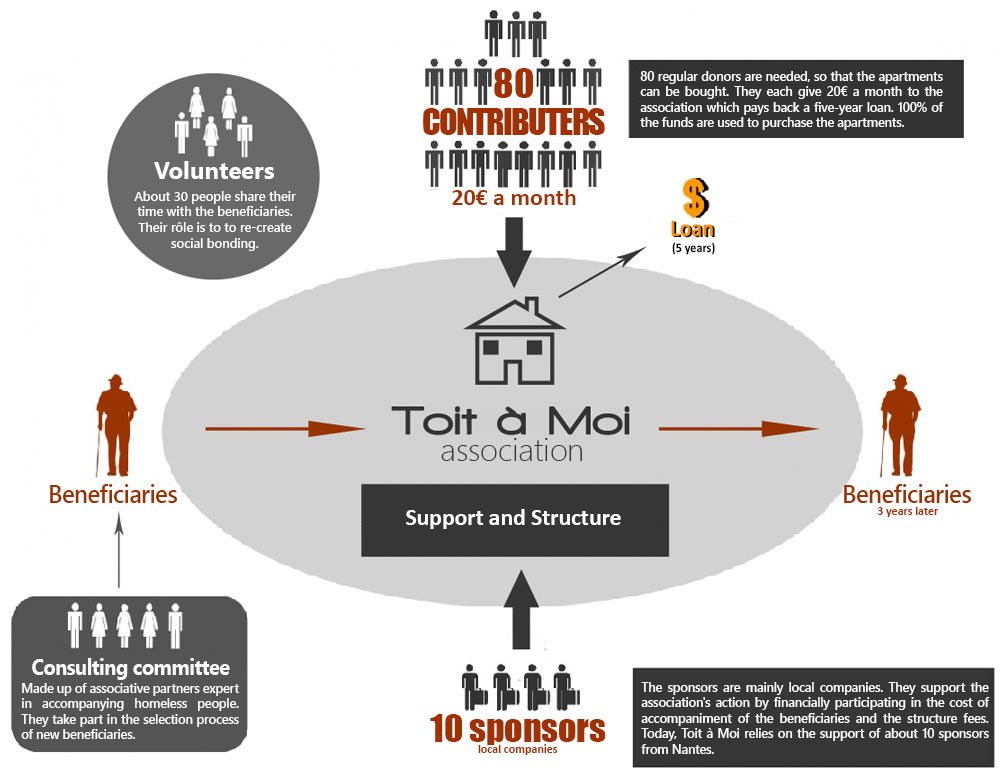The contributors only participate in buying the apartments. “100% of the funds go to buying the lodgings and to nothing else. People need to know where their money is going, the founder specifies. Nowadays, trust and transparency are essential. If they want, they can visit the apartment, it’s real, it’s tangible and sustainable.
The first apartment will soon be reimbursed. The loan has been signed five years ago. The team of « toit à moi » are thinking about writing the names of all the donators inside.
The lodgings are at the heart of the scheme, but the association wouldn’t reach its goal if the concept only cared about that. Some quality accompaniment is essential. The beneficiaries need to be supported and accompanied to be able to bounce back. Yet, such a follow-up is costly. The idea of the two founders is to dissociate such part from the accommodation part. Here, local companies are asked to participate and become sponsors. “The issue has to get solved locally. Local actors have to take part. Companies thus also have a role to play,” Denis adds.




 VIDEO - Episode #2
VIDEO - Episode #2 
